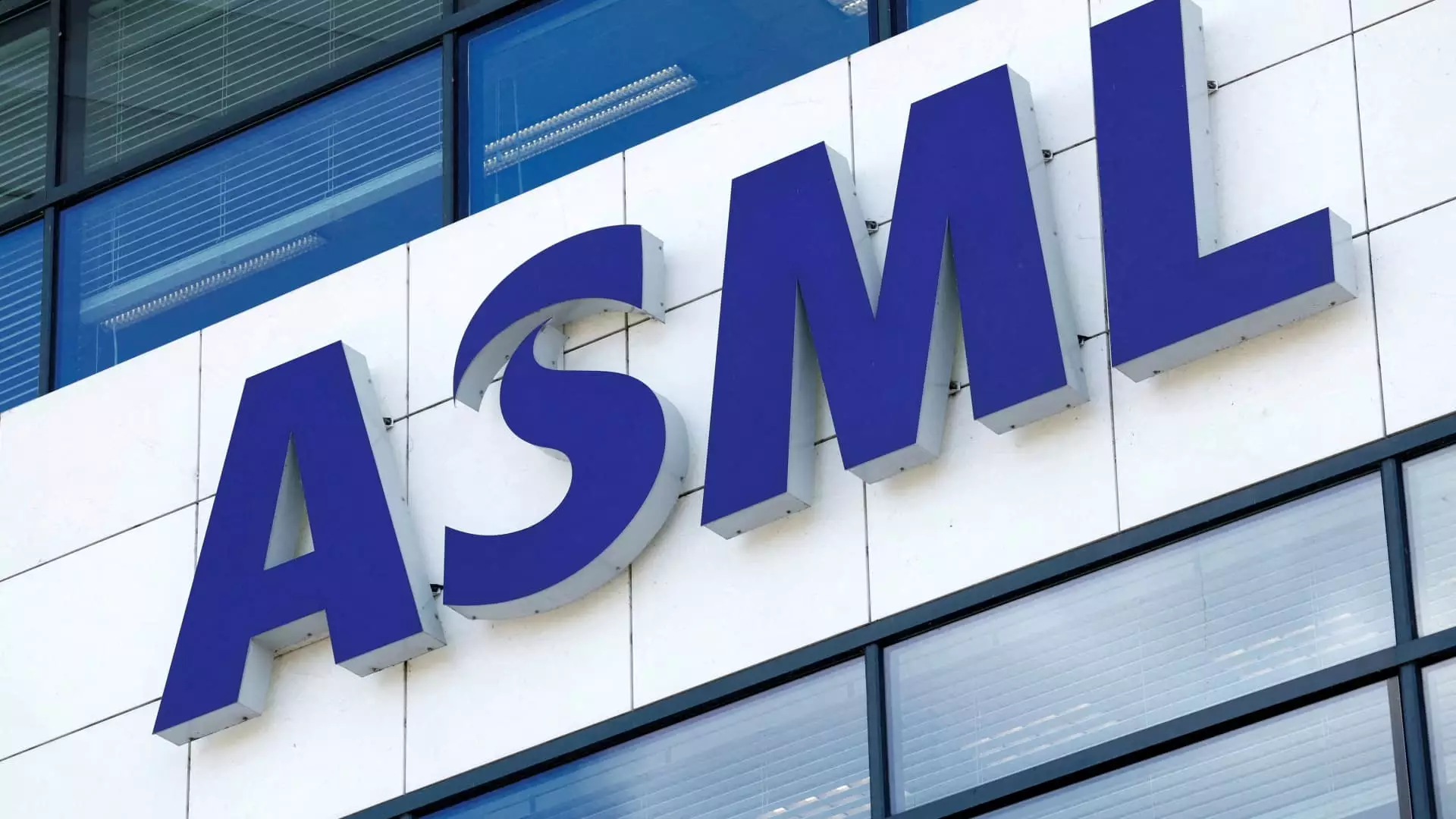ASML, a crucial player in the semiconductor industry, recently reported second-quarter earnings and sales that surpassed analyst forecasts. The Dutch company’s net sales reached 6.24 billion euros, outperforming the expected 6.03 billion euros, while net profit amounted to 1.58 billion euros against the anticipated 1.43 billion euros. Despite a 9.5% decline in net sales and an 18.7% drop in net income year-on-year, ASML’s performance in the second quarter was better than the previous quarter. The company’s net bookings, a key indicator of market demand for ASML’s machinery, soared by over 24% year-on-year to 5.6 billion euros.
ASML’s success in the second quarter can be attributed to the growing interest in artificial intelligence chips, which require sophisticated manufacturing tools. The company specializes in producing extreme ultraviolet (EUV) lithography machines essential for creating the most advanced chips in the industry. With AI driving innovation and growth in the semiconductor sector, ASML is well-positioned to benefit from this trend. CEO Christophe Fouquet highlighted the industry’s recovery in the face of market uncertainties and reiterated ASML’s commitment to investing in capacity ramp and technology development.
Despite ongoing geopolitical challenges and export restrictions on advanced semiconductor equipment, ASML remains optimistic about its outlook for the full year. The company maintained its forecast for third-quarter net sales between 6.7 billion euros and 7.3 billion euros, signaling confidence in continued industry recovery. ASML anticipates a transition year in 2024, with sustained investments to meet the evolving demands of the semiconductor market. The emergence of new fabs across the globe, particularly in the U.S. and Asia, further underscores the industry’s cyclical upturn expected in 2025.
While AI currently represents a relatively small portion of ASML’s revenues, analysts predict significant growth in this segment in the near future. Ben Barringer, a technology analyst at Quilter Cheviot, foresees a substantial increase in AI-related revenue for ASML. The company’s strategic position in providing essential equipment for AI chip manufacturing positions it well to capitalize on the expanding market.
ASML faces challenges from geopolitical headwinds, particularly concerning export restrictions imposed by the U.S. government. Despite the impact of these measures on certain market segments, ASML remains resilient by adapting to the changing landscape. The company’s ability to navigate geopolitical complexities while maintaining its competitive edge highlights its resilience in the face of uncertainties.
ASML’s strong second quarter performance, driven by the increasing demand for AI chips and advanced semiconductor equipment, showcases the company’s robust position in the industry. With a focus on innovation, strategic investments, and adapting to market dynamics, ASML is poised to continue its growth trajectory amidst evolving industry trends and challenges.


Leave a Reply